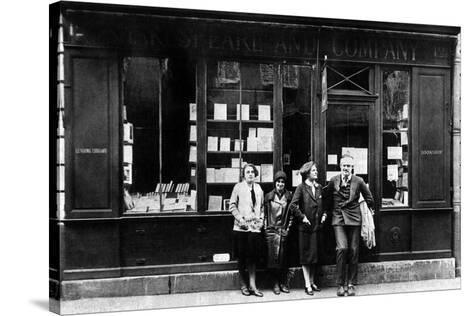
Joshua Kotin, an associate professor of English at the university, draws on the archive to reveal new stories about the writers who frequented the shop, including Ernest Hemingway and Gertrude Stein. When Beach died in 1962, she left behind a vast archive of business and personal records, which are now held by Princeton University. In the decades that followed, she would change the course of literary history, publishing James Joyce’s banned masterpiece Ulysses in 1922 and creating a meeting place for a community of writers and artists now known as the Lost Generation. At your next visit you might meet Gertrude Stein or Valery Larbaud or Claude Cahun.In 1919, an American woman named Sylvia Beach opened Shakespeare and Company, an English-language bookshop and lending library on the Left Bank of Paris.

She notes the title on your lending library card and reminds you to return the book by the end of the week. You bring it to Sylvia, who seems to approve. (You’re relieved that Shakespeare and Company has fantasy novels.) But then you see a thin volume with a colorful cover: Woolf’s Kew Gardens (1919), recently published in a limited edition by Hogarth Press with woodcuts by Vanessa Bell.

You also consider, somewhat guiltily, Andrew Soutar’s Equality Island (1919). You consider Ezra Pound’s collection of essays, Pavannes and Divisions (1918), and Upton Sinclair’s muck-racking The Brass Check (1919). It’s out, but Sylvia suggests checking back later in the week. You ask about Virginia Woolf’s recent novel, Night and Day (1919).

You look at recent magazines- The New Republic and The Dial, Poetry and Playboy. She also notes your membership and payment in a logbook. Sylvia hands you membership card and creates a lending library card to keep track of your borrowing activities.


 0 kommentar(er)
0 kommentar(er)
